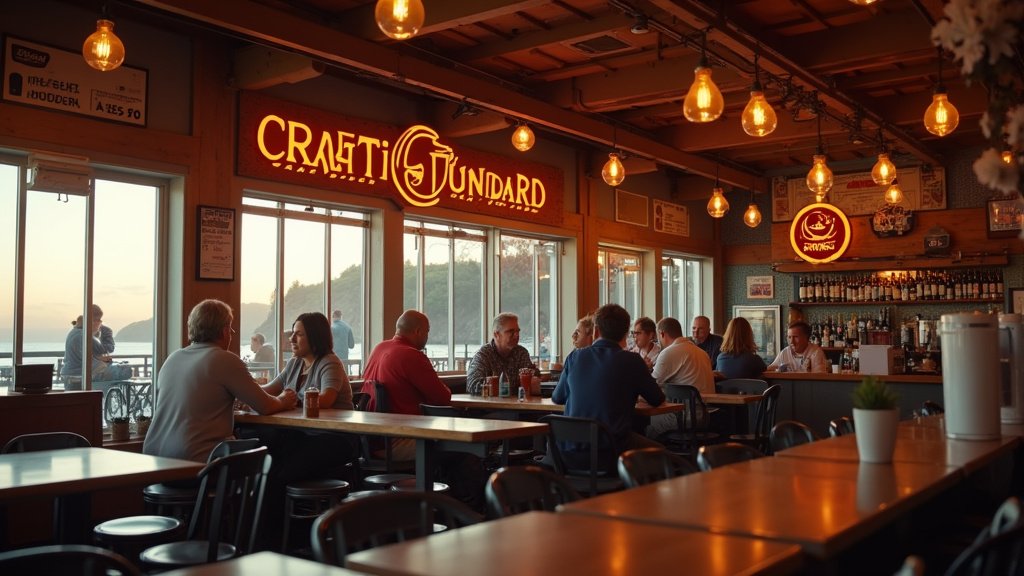The Estacada City Council has postponed a decision on a contentious ordinance, Ordinance 2025-004, which proposed to prohibit new cannabis production and processing businesses within the city’s M-1 industrial zone and revise operational requirements for existing ones. The council’s decision to delay the vote signals a cautious approach, aiming to protect local businesses and grant citizens a final say on the matter. This development is a significant piece of news for the cannabis industry in the region.
Roots of the Ordinance: Odor Complaints and Zoning Concerns
The proposal for Ordinance 2025-004 emerged as a direct response to ongoing nuisance odor complaints that have plagued businesses and residents located near or within the M-1 light industrial zone. Since Estacada first permitted marijuana production and processing as an outright use in its M-1 zone in 2016, city staff and council members have received recurring complaints. Despite previous enforcement efforts, including education, equipment inspections, and management practice recommendations, the odor issues have persisted, prompting the council to explore more stringent regulatory options earlier this year.
Council’s Prudent Pause: Business Impact and Voter Rights
During a recent session, the Estacada City Council decided to defer a vote on the ordinance, acknowledging the potential negative impact on existing local cannabis businesses. Council members emphasized their commitment to avoiding inadvertent harm to these enterprises, which contribute to the local economy. Furthermore, the council expressed a strong desire to allow voters the ultimate decision-making power should the city ultimately move forward with a local ban on new cannabis operations. This approach underscores a commitment to democratic processes in shaping local policy.
Navigating Regulatory Waters and Business Preservation
In light of the postponement, city staff have been instructed to undertake several key actions. They are tasked with seeking clarifying guidance directly from the Oregon Liquor and Cannabis Commission (OLCC), the state agency responsible for regulating the cannabis industry. Additionally, staff will compile crucial data regarding the renewal dates for existing cannabis business licenses. A primary objective is to present the council with viable options that could safeguard the operations of current businesses during any potential transition period, ensuring business continuity while exploring new regulatory frameworks.
The council also acknowledged potential legal challenges, particularly if proposed changes were to narrowly restrict allowable retail operations to specific parcels. The complexity of zoning regulations and their intersection with cannabis business licensing is a significant consideration for local governments across Oregon.
The Road Ahead: Voter Referendum and Interim Strategies
Under the initial proposal, if the council had proceeded, Ordinance 2025-004 would have been referred to voters in 2026. The original plan also suggested that the OLCC would be prohibited from renewing licenses during the interim period leading up to the vote, a measure now being re-evaluated to prevent immediate harm to businesses. The current postponement allows for a more thorough examination of alternatives that balance community concerns with economic realities, potentially shaping the future of cannabis operations within Estacada.
Broader Implications for Oregon’s Cannabis Landscape
Estacada’s deliberation highlights a common challenge faced by municipalities in Oregon: how to effectively regulate the burgeoning cannabis industry. Local jurisdictions wield significant authority over land use and zoning, influencing where and how cannabis businesses can operate. The OLCC provides state-level licensing and oversight, but local zoning decisions play a critical role in the day-to-day viability and expansion prospects of these enterprises. This news from Estacada is part of a larger, ongoing conversation about sustainable growth and community integration within Oregon’s regulated cannabis market.
The council’s decision to postpone underscores a deliberative process, aiming for solutions that are both effective in addressing community concerns and fair to the businesses operating under current regulations. The path forward will likely involve further public input, consultation with state regulators, and ultimately, a decision that balances diverse stakeholder interests.




